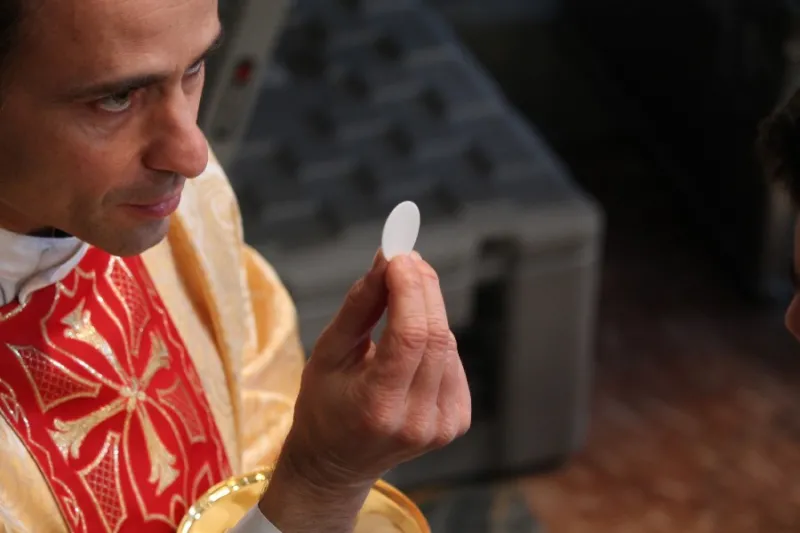
Catholic bishops lament European Parliament abortion vote
 Archbishop Stanisław Gądecki of Poznań. / Polish Bishops’ Conference.
Archbishop Stanisław Gądecki of Poznań. / Polish Bishops’ Conference.
Warsaw, Poland, Jun 25, 2021 / 03:45 am (CNA).
Catholic bishops have criticized the European Parliament’s declaration that abortion is “essential healthcare” and conscientious objection should be redefined as a “denial of medical care.”
Archbishop Stanisław Gądecki, the president of the Polish bishops’ conference, said that the European Parliament’s vote in favor of the Matić Report signaled that the European Union was embracing “a culture of death and exclusion.”
“I am deeply saddened by the European Parliament resolution calling for the possibility of killing unborn children,” the archbishop of Poznań wrote on his Twitter account June 24.
“The culture of life envisaged by the Founding Fathers of the EU is turning into a culture of death and exclusion, with ideology taking precedence over reason.”
Bishop Kevin Doran noted that every Irish member of the European Parliament (MEP) voted in favor of the report.
Writing on social media, he said: “Very disappointing to see [that] every Irish MEP voted today against the right to freedom of conscience which is recognised in the Universal Declaration of Human Rights and in favour of the non-existent human right to abortion. God bless our healthcare professionals.”
Very disappointing to see the every Irish MEP voted today against the right to freedom of conscience which is recognised in the Universal Declaration of Human Rights and in favour of the non-existent human right to abortion. God bless our healthcare professionals. @Martin_Long
— Kevin Doran (@KevinElphin) June 24, 2021
In a press release issued after the vote, the European Parliament said that MEPs regretted that some EU states have “a so-called conscience clause” recognizing the right of medical practitioners not to participate in abortions.
“This leads to the denial of abortion care on the grounds of religion or conscience and puts women’s lives in danger,” it said.
The press release quoted Predrag Fred Matić, the Croatian politician who presented the report to the European Parliament, as saying: ‘‘This vote marks a new era in the European Union and the first real resistance to a regressive agenda that has trampled on women’s rights in Europe for years.’’
Members of the European Parliament, the EU’s law-making body, voted by 378 votes in favor, 255 against, and 42 abstentions, to adopt the report at a plenary session in Brussels, Belgium.
In addition to describing abortion as an “essential” health service and rejecting conscientious objection, the report declares that violations of “sexual and reproductive health and rights” are “a form of violence against women and girls.”
Only two of the EU’s 27 member states — Poland and Malta — do not permit abortion on demand or on broad social grounds.
The European Centre for Law and Justice (ECLJ), an NGO based in Strasbourg, France, suggested that the report’s supporters were seeking “to introduce a new norm without it appearing at first sight to be imposed.”
It said: “The choice of the institution in this strategy is not to be underestimated, because although the resolutions of the European Parliament have no binding legal value, they are the expression of an opinion that the Parliament wishes to make known.”
“A resolution may subsequently serve to politically legitimize action by the member states or the institutions; it is intended to produce practical effects.”
“More importantly, it can express a pre-legislative intention that can later be used to justify binding acts. There is, therefore, no doubt that an act of the European Parliament represents the gateway to the heart of the normative system.”
CNA Deutsch, CNA’s German-language news partner, reported that the group Christian Democrats for Life criticized the European Parliament vote.
It said that “the spirit of the Christian founding fathers of the European Union is turned into the absolute opposite by this decision, which will certainly lead to a further inner turning away from Europe among many citizens of the Union.”
The initiative Maria 1.0 also deplored the vote, saying that the European Parliament’s appeal for access to “safe and legal abortions” in the EU “borders on the cruelest barbarism.”
David Sassoli, the president of the European Parliament, is expected to meet with Pope Francis at the Vatican on Saturday.


